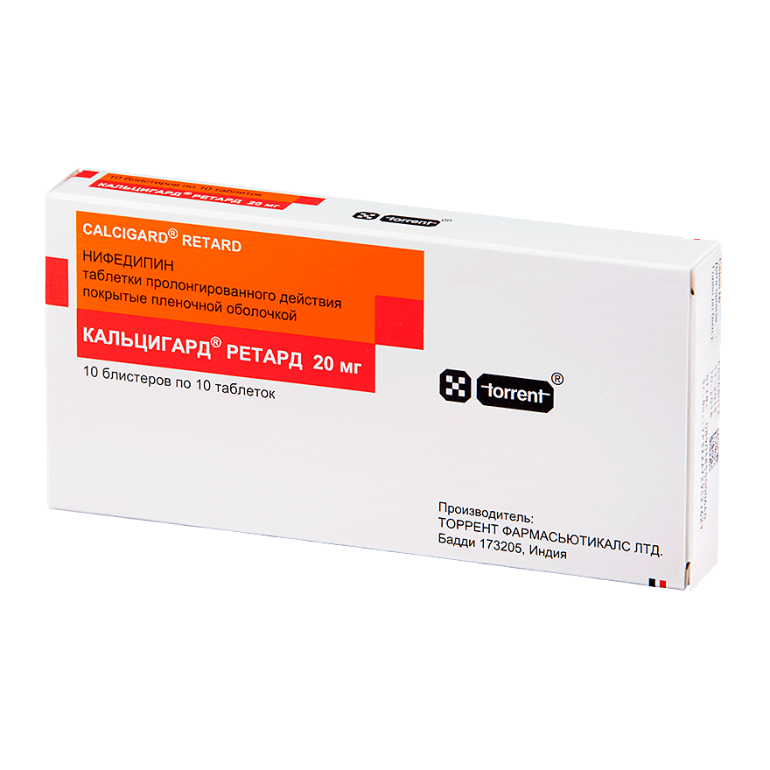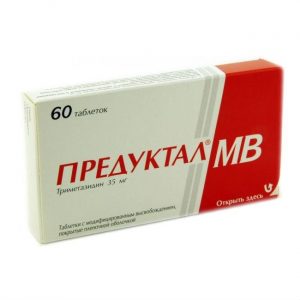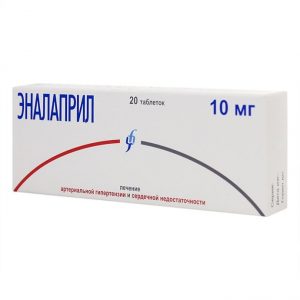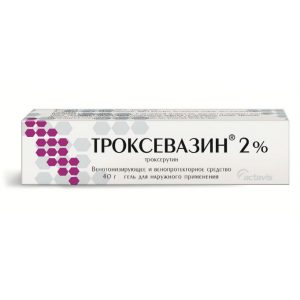Description
Latin name
Calcigard retard
Release form
Film-coated tablets, retard.
Packing
100 pcs.
Pharmacological action
Calcigard retard has a hypotensive, antianginal effect.
Indications
Calcigard Retard is intended for the treatment of stable angina pectoris, vasospastic angina pectoris, hypertension, Raynaud’s disease.
Contraindications
Hypersensitivity to nifedipine, other derivatives of dihydropyridine or other components of the finished dosage form arterial hypotension, cardiogenic shock, collapse, severe aortic stenosis, CVD, instability of angina pectoris, severe heart failure, acute stage of myocardial infarction (during the first 4 weeks), pregnancy, lactation.
Composition
1 table. contains nifedipine 20 mg, excipients: lactose starch MCC Tween-80 polyethylene glycol stearic acid PVP magnesium sodium stearate lauryl sulfate.
Dosage and administration
Calcigard retard is taken orally, the dosage regimen is set individually. The average dose is 1 tablet. (20 mg) 2 times a day with a small amount of liquid during or after a meal. With insufficient severity of the clinical effect, a gradual increase in dose is possible. The maximum dose is 40 mg 2 times a day.
Side effects of
From the cardiovascular system: possibly – facial flushing, feeling of heat, tachycardia, peripheral edema, arterial hypotension. Special instructions – in some patients, especially at the beginning of treatment, angina attacks may occur, which requires discontinuation of the drug.
From the central nervous system: headache, dizziness, fatigue, drowsiness. When using high doses of the drug, isolated cases of the occurrence of paresthesia of the extremities, tremor, mild visual disturbances, and sleep disturbance were noted.
From the gastrointestinal tract and liver: nausea, constipation, diarrhea. With prolonged use of the drug, there may be cases of increased activity of liver transaminases in the blood serum, the occurrence of intrahepatic cholestasis.
From the hemopoietic system: in rare cases, reversible thrombocytopenia, leukopenia, anemia.
From the urinary system: increased daily diuresis in patients with renal failure – impaired renal function.
Allergic reactions: rarely – urticaria, pruritus.
Others: with prolonged use – myalgia, gynecomastia, gingival hyperplasia, hyperglycemia.
Overdose
Symptoms: severe arterial hypotension, cardiac arrhythmias (bradycardia or tachycardia). With an increase in the phenomena of intoxication, hypoxia, cardiogenic shock, and impaired consciousness can occur.
Treatment: gastric lavage, intake of activated carbon, intravenous administration of calcium salts. The treatment is symptomatic. Hemodialysis is not effective.
Storage conditions
Store below 30 ° C in a place protected from light and moisture.
The Expiration of
is 3 years.
active substance
Nifedipine
Terms leave through pharmacies
In retseptu
Dosage form
tablet prolong.
Torrent, India




